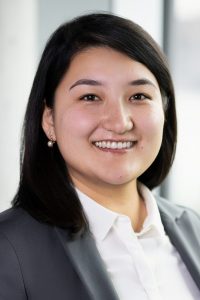
Inessa De
BASF
Germany
EMBL Course
Please see EMBL’s COVID-19 safety policy for testing and other requirements to attend this on-site course.
Purified proteins are used in various types of scientific experiments and fields. For example, in structural biology insights into the functional mechanisms can be obtained by elucidating the 3D molecular structure of proteins and protein complexes using technologies such as X-ray crystallography, cryo-EM and NMR. In biochemistry and biophysics, interactions with other proteins, nucleic acids and small molecules can be studied by determining affinities and specificities. Proteins can function as antigens to generate specific antibodies or as reagents in cell biology experiments. Furthermore, recombinant proteins can be used as tool molecules in genomics, chemical biology and microscopy assays. In order for these experiments to produce reliable and biologically relevant results, they must be performed using high-quality proteins that are active, properly folded, in the right oligomeric state and contain correctly inserted co-factors. Ensuring that these parameters are fulfilled requires quality control.
In this course, we want to help the participants to become acquainted with the concept of protein quality control and provide them with an overview of the specific protein requirements for various downstream applications. Different techniques that can be applied for this purpose will be introduced and participants will have the opportunity to get hands-on experience with these technologies.
This course is aimed at life-science researchers of all levels, who are using or plan to use purified proteins in their wet-lab experiments, but who do not necessarily have a strong background in protein production and characterisation methods. We will focus on introducing protein quality control methodologies in order to improve the reliability and reproducibility of data obtained from experiments that make use of purified proteins. After this course, participants should be familiar with the biochemical and biophysical techniques that can be applied to ensure that they are working with high-quality protein samples suitable for the planned downstream experiments.
During the course, specialists from both academia and industry will work closely together to introduce technologies frequently used in protein quality control. Some of these methodologies can be utilised both to assess protein quality and as stand-alone biophysical characterisation techniques.
One of the highlights of the course that we are very excited about is the cryo-electron microscopy (cryo-EM) practical. Cryo-EM has undergone a revolution in recent years and is becoming increasingly popular in many interdisciplinary projects. However, in order to attain high-resolution data, the protein samples need to fulfil quite stringent conditions.
Our main goals are:
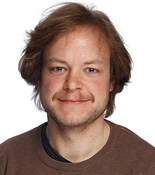
EMBL Heidelberg
Germany
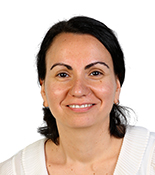
EMBL Hamburg
Germany
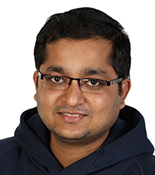
EMBL Heidelberg
Germany
Refeyn
UK
NanoTemper
Germany
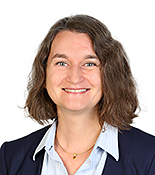
EMBL Heidelberg
Germany
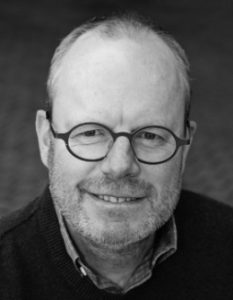
Université de Liège
Belgium
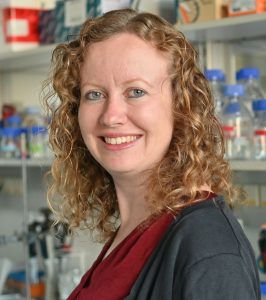
Max Planck Institute of Biophysics
Germany
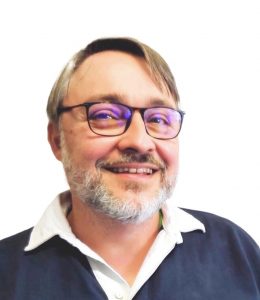
Institut Pasteur
France
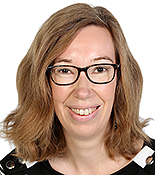
EMBL Heidelberg
Germany
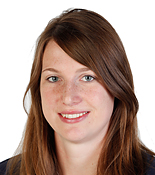
EMBL Heidelberg
Germany
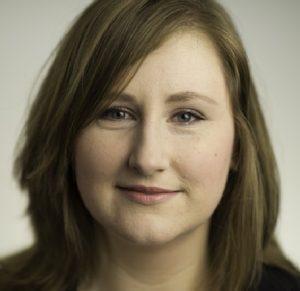
Malvern Panalytical
Germany
NanoTemper
Germany
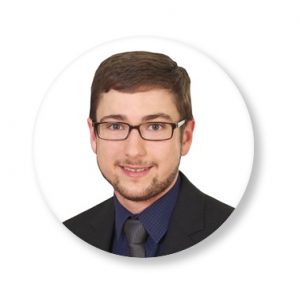
Wyatt
Germany
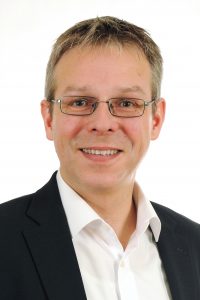
Malvern Panalytical
Germany
Scientific organisers
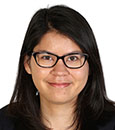
Course and Conference Manager
EMBL Heidelberg
Germany

Training Lab Technician
EMBL Heidelberg
Germany
Got something to say? Tweet it with #EMBLProteinQC
| Time (Europe/Berlin) | Session | Location |
|---|---|---|
| 08:40 – 09:00 | Bus from hotel to EMBL ATC Entrance | ISG Hotel |
| 09:00 – 09:45 | Welcome and house notes and course overview | Flex Lab A & B |
| 09:45 – 10:45 | Flash talks (5min, Introduction round and “Challenges and Expectations”) | Flex Lab A & B |
| 10:45 – 11:15 | Coffee Break | Flex Lab A & B |
| 11:15 – 12:15 | Flash talks (5min, Introduction round and “Challenges and Expectations”) cont. | Flex Lab A & B |
| 12:15 – 13:30 | Lunch | Canteen |
| 13:30 – 14:15 | Lecture: An overview of protein expression and purification methods for obtaining high-quality protein samples Kim Remans – EMBL Heidelberg, Germany | Flex Lab A & B |
| 14:15 – 15:00 | Lecture: An overview of Protein quality control: The example of Institut Pasteur Bertrand Raynal – Institut Pasteur, France | Flex Lab A & B |
| 15:00 – 15:30 | Coffee Break | Flex Lab A & B |
| 15:30 – 18:30 | 4 practicals in parallel Practical 1: Isothermal Titration Calorimetry (ITC) and Dynamic Light Scattering (DLS) Agatha Rosenthal – Malvern Panalytical, Germany Bernd Tartsch – Malvern Panalytical, Germany Practical 2: Nano-Differential Scanning Fluorimetry (nano-DSF) and MicroScale Thermophoresis (MST) Arpita Kundu – NanoTemper, Germany Jan Schnatwinkel – NanoTemper, Germany Practical 3: Size Exclusion Chromatography coupled to Multi-Angle Light Scattering and Dynamic Light Scattering (SEC-MALS-DLS) and Mass Photometry Melisse Erasmus – Refeyn, UK Sebastian Joecks – Refeyn, UK Christian Sieg – Wyatt, Germany Practical 4: Cryo-Electron Microscopy (cryo-EM) Simon Fromm – EMBL Heidelberg, Germany | Training Lab B IC building, room 125 |
| 18:30 – 20:00 | Dinner | Roof top lounge |
| 20:00 | Departure to Hotel | ATC Entrance |
| Time (Europe/Berlin) | Session | Location |
|---|---|---|
| 09:00 – 09:10 | Overview of the day | Flex Lab A & B |
| 09:10 – 12:10 | 4 practicals in parallel Practical 1: Isothermal Titration Calorimetry (ITC) and Dynamic Light Scattering (DLS) Agatha Rosenthal – Malvern Panalytical, Germany Bernd Tartsch – Malvern Panalytical, Germany Practical 2: Nano-Differential Scanning Fluorimetry (nano-DSF) and MicroScale Thermophoresis (MST) Arpita Kundu – NanoTemper, Germany Jan Schnatwinkel – NanoTemper, Germany Practical 3: Size Exclusion Chromatography coupled to Multi-Angle Light Scattering and Dynamic Light Scattering (SEC-MALS-DLS) and Mass Photometry Melisse Erasmus – Refeyn, UK Sebastian Joecks – Refeyn, UK Christian Sieg – Wyatt, Germany Practical 4: Cryo-Electron Microscopy (cryo-EM) Simon Fromm – EMBL Heidelberg, Germany | Training Lab B IC building, room 125 |
| 12:10 – 13:15 | Lunch | Canteen |
| 13:15 – 14:00 | Lecture: Quality control of protein-RNA complexes for structural studies Pravin Kumar Ankush Jagtap – EMBL Heidelberg, Germany | Flex Lab A & B |
| 14:00 – 14:45 | Lecture: Quality control for membrane proteins Melanie McDowell – Max Planck Institute of Biophysics, Germany | Flex Lab A & B |
| 14:45 – 15:15 | Coffee break | Flex Lab A & B |
| 15:15 – 18:15 | 4 practicals in parallel Practical 1: Isothermal Titration Calorimetry (ITC) and Dynamic Light Scattering (DLS) Agatha Rosenthal – Malvern Panalytical, Germany Bernd Tartsch – Malvern Panalytical, Germany Practical 2: Nano-Differential Scanning Fluorimetry (nano-DSF) and MicroScale Thermophoresis (MST) Arpita Kundu – NanoTemper, Germany Jan Schnatwinkel – NanoTemper, Germany Practical 3: Size Exclusion Chromatography coupled to Multi-Angle Light Scattering and Dynamic Light Scattering (SEC-MALS-DLS) and Mass Photometry Melisse Erasmus – Refeyn, UK Sebastian Joecks – Refeyn, UK Christian Sieg – Wyatt, Germany Practical 4: Cryo-Electron Microscopy (cryo-EM) Simon Fromm – EMBL Heidelberg, Germany | Training Lab B |
| 18:15 | Dinner downtown |
| Time (Europe/Berlin) | Session | Location |
|---|---|---|
| 09:00 – 09:10 | Overview of the day | Flex Lab A & B |
| 09:10 – 10:40 | Lecture: CD and Optical Spectroscopy for Protein Quality Control André Matagne – Université de Liège, Belgium | Flex Lab A & B |
| 10:40 – 11:00 | Coffee break | Flex Lab A & B |
| 11:00 – 11:45 | Lecture: Protein production, characterisation and quality control processes in industry Inessa De – BASF, Germany | Flex Lab A & B |
| 11:45 – 12:30 | Lecture: Why should we use Proteomics for protein quality controlling? Mandy Rettel – EMBL Heidelberg, Germany | Flex Lab A & B |
| 12:30 – 13:30 | Lunch | Canteen |
| 13:30 – 14:15 | Lecture: Production of protein complexes for cryo-EM Sebastian Eustermann – EMBL Heidelberg, Germany | Flex Lab A & B |
| 14:15 – 14:45 | Lecture: Advanced characterisation of membrane protein Bertrand Raynal – Institut Pasteur, France | Flex Lab A & B |
| 14:45 – 15:15 | optional: Core Facility Tour | Core Facility |
| 15:00 – 15:30 | Coffee break | Flex Lab A & B |
| 15:30 – 18:30 | 4 practicals in parallel Practical 1: Isothermal Titration Calorimetry (ITC) and Dynamic Light Scattering (DLS) Agatha Rosenthal – Malvern Panalytical, Germany Bernd Tartsch – Malvern Panalytical, Germany Practical 2: Nano-Differential Scanning Fluorimetry (nano-DSF) and MicroScale Thermophoresis (MST) Arpita Kundu – NanoTemper, Germany Jan Schnatwinkel – NanoTemper, Germany Practical 3: Size Exclusion Chromatography coupled to Multi-Angle Light Scattering and Dynamic Light Scattering (SEC-MALS-DLS) and Mass Photometry Melisse Erasmus – Refeyn, UK Sebastian Joecks – Refeyn, UK Christian Sieg – Wyatt, Germany Practical 4: Cryo-Electron Microscopy (cryo-EM) Simon Fromm – EMBL Heidelberg, Germany | Training Lab B IC building, room 114 |
| 18:30 – 20:00 | Dinner | EMBL Canteen |
| 20:00 | Departure to Hotel |
| Time (Europe/Berlin) | Session | Location |
|---|---|---|
| 09:30 – 11:00 | Round table with speakers, instructors and all participants | Rooftop lounge |
| 11:00 – 11:30 | Coffee break | Flex Lab A & B |
| 11:30 – 12:00 | Feedback and closing remarks | Flex Lab A & B |
| 12:00 – 12:15 | Departure and packed lunch |
The course is limited to 16 participants. For selection purposes, please note that your application will not be considered without a letter of motivation.
Registration fees include admission, course materials, COVID-19 safety measures, meals and coffee breaks.
Participants are expected to book and pay their own accommodation and travel expenses.
| Academia | €600 |
| PhD Student | €600 |
| Industry | €1100 |
The registration fee should be paid only after acceptance to the course. The results will be announced approximately 2-3 weeks after the application deadline.
After you have logged in and successfully registered, you will receive an email asking you to submit your motivation letter. Click on the link provided and enter your motivation letter in the text box provided. Alternatively you can submit your motivation letter by clicking on the link on the confirmation page directly after registering.
Instructions
Please note:
For more detailed information, follow the instructions provided in our video on how to submit a course motivation letter.
For further information about registration and motivation letter submission please refer to the FAQ page.
Limited financial assistance is provided by the EMBL Advanced Training Centre Corporate Partnership Programme and EMBO in the form of both registration fee waivers and travel grants. Availability is limited to participants attending on-site events in Heidelberg and will be indicated during the abstract or motivation letter submission process.
Your place in the meeting is only confirmed by paying the registration fee, which is mandatory even when receiving a fee waiver.
The fee waiver will cover the registration sum that you have paid to attend the course or conference.
The travel grant will cover the cost of travel (airfare, train, bus, taxi, accommodation, visa, and/or registration fees*) and is provided up to specified caps which are normally as follows:
– up to €400 for participants travelling to an EMBL Course, EMBL Conference or EMBO|EMBL Symposium from within Europe.
– up to €1000 for participants travelling to an EMBL Course, EMBL Conference or EMBO|EMBL Symposium from outside Europe.
– up to €500 for any participant travelling to an EMBO Practical Course or EMBO Workshop.
– up to €1000 for any participant working in Chile, India, Singapore or Taiwan travelling to an EMBO Practical Course or EMBO Workshop.
*Registration fees are only covered for EMBO Practical Courses or EMBO Workshops
The organisers may reduce the grant cap to accommodate more participants. Recipients will be notified of their travel cap amount when they are informed of the outcome of their application. Original receipts must be provided with your signature for all costs incurred within two months of completion of travel. Scanned copies cannot be accepted.
Applies to selected courses only. Availability will be indicated during the abstract or motivation letter submission process.
This grant covers costs related to your attendance at the course (registration, travel and accommodation costs). The grant is restricted to PhD students and postdocs who conduct basic biomedical research.
Whether you are eligible to apply for a travel grant, depends on when you received your university entrance qualification (e.g. Abitur, A-Levels, High School Diploma, Final State Examination):
– for PhD and MD students, as well as graduates, the university entrance qualification must not have been obtained more than 11 years ago at the time of the envisaged course
– for postdocs, the university entrance qualification must not have been obtained more than 13 years ago at the time of the envisaged course
You may apply for financial assistance when submitting your motivation letter for courses, and abstract for conferences. In your application, you will be asked to answer questions regarding why your lab cannot fund your attendance and how your attendance will make a difference to your career. Application for financial support will not affect the outcome of your registration application.
For the Boehringer Ingelheim Fonds Travel Grant, there is a pre-application question during the motivation letter submission process, and if selected you will be requested to complete a standard form and documentation consisting of your travel expense estimation.
The scientific organisers will select the recipients of all financial assistance during the motivation letter or abstract selection process. Results will be announced approximately 6-8 weeks before the event start date, however for some events this may be delayed. Selection results do not impact your admission to the meeting. Selection is based on your current work or study location, the reasons for needing financial support and the impact this event will have on your career.
Costs will be reimbursed after the meeting only once a reimbursement form and original receipts (from travel costs) have been received.
See our list of external funding opportunities and information on attending a conference as an event reporter.
For further information about financial assistance please refer to the FAQ page.
Single rooms have been reserved for 4 nights (28 November – 02 December 2022) at the ISG Hotel. After the selection process, selected participants should contact the hotel directly to make a booking (booking code PQC22-01). We recommend that all course participants stay at the ISG Hotel which is the dedicated hotel for the course.
Shuttle buses will go from the ISG Hotel to EMBL and back, mornings and evenings.
The bus schedule can be found here.
Address: EMBL Heidelberg, Meyerhofstraße 1, 69117 Heidelberg, Germany
For further information on getting to EMBL Heidelberg visit our Travel Information page.
For enquiries about accommodation and local transportation please refer to the FAQ page.
Please find additional information including FAQs, terms and conditions, COVID-19 safety policy and travelling to EMBL on our Information for Participants page.
COVID-19 information for on-site events at EMBL Heidelberg can be found in our COVID-19 FAQs.
Sponsorship opportunities
We offer a variety of event sponsoring possibilities, with the flexibility to select a set sponsorship package or combine individual sponsorship options to suit your event budget. Discounts are available for companies sponsoring multiple events at EMBL Heidelberg. View other events, or contact sponsorship@embl.de for further information.
If you are interested in becoming a media partner of this event, please visit our media partnerships webpage.
Want to let others know you’re attending this event? Take a look at our shareable media and feel free to use them in your social media channels or presentations.
Date: 29 Nov - 2 Dec 2022
Location: EMBL Heidelberg
Venue: EMBL Advanced Training Centre
Deadline(s):
Application: Closed
Organisers:
Contact: Lea Hohmann